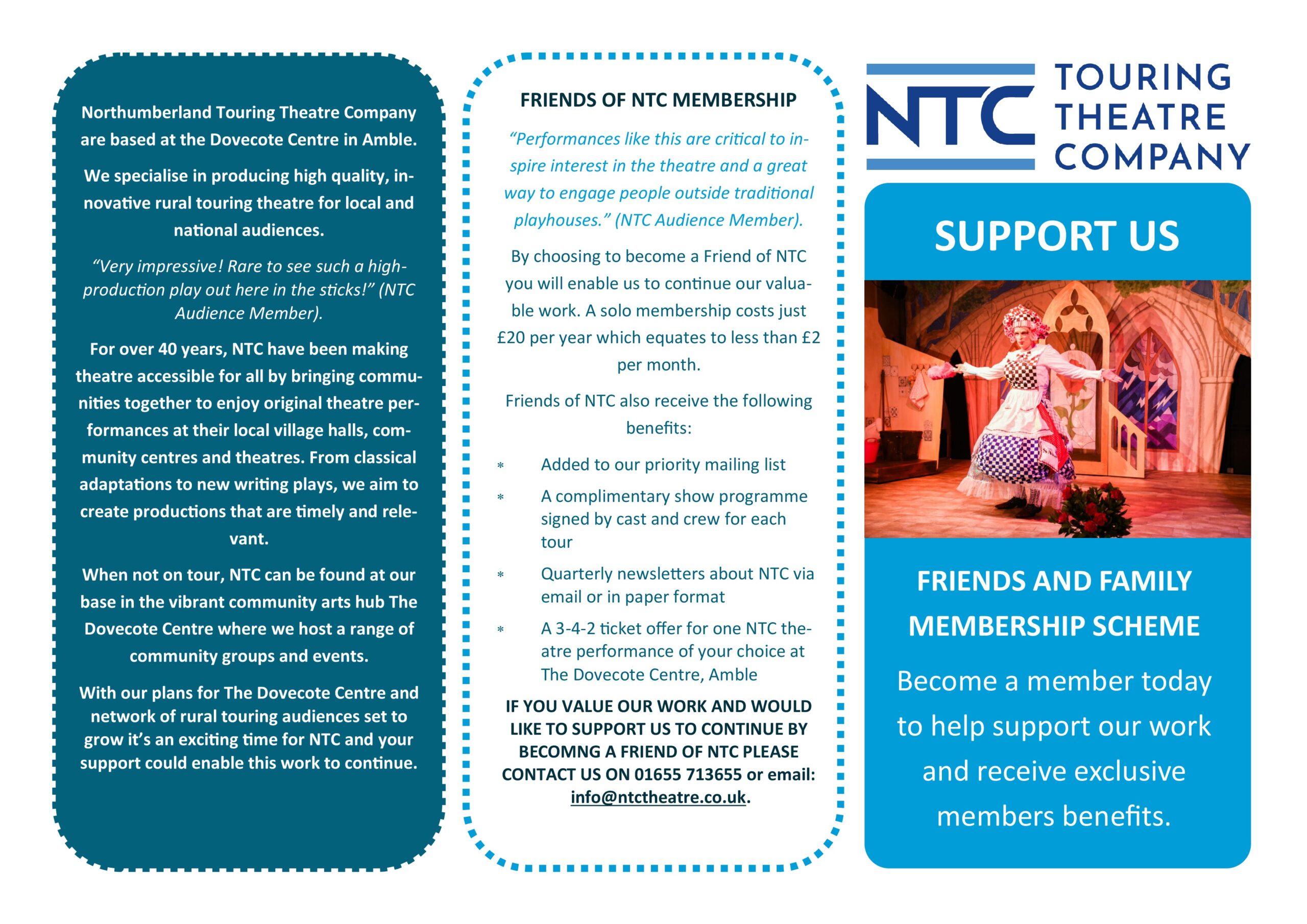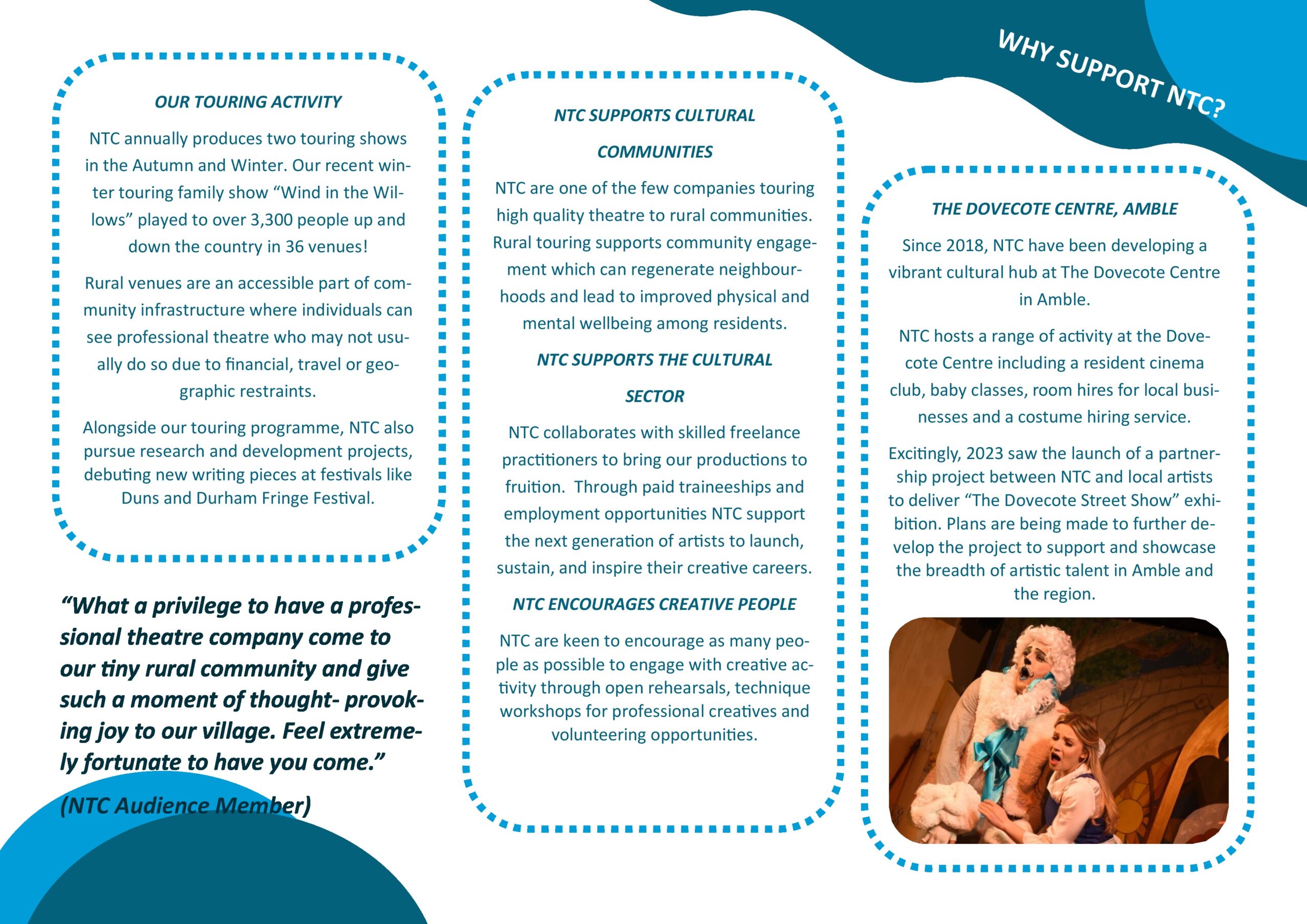If you are passionate about the performing arts, committed to taking theatre to theatreless zones and to building a centre of arts and community we would like to hear from you. We welcome applications from anyone who believes they can make a strong contribution and are particularly interested in:
Individuals with board experience and an understanding of or an interest in arts organisations and the charity sector
People with experience of business, finance, law and management
Artists from disciplines other than dance to help us spread the range of creative activity and champion the range of artistic issues that matter to us
Encouraging people with lived experiences of ethnic diversity to join the board.
Northumberland Theatre Company is proud to be a culturally rich and diverse organisation and welcomes applications from all, irrespective of colour, race, sex, religion, sexual orientation, disability, age and background.



